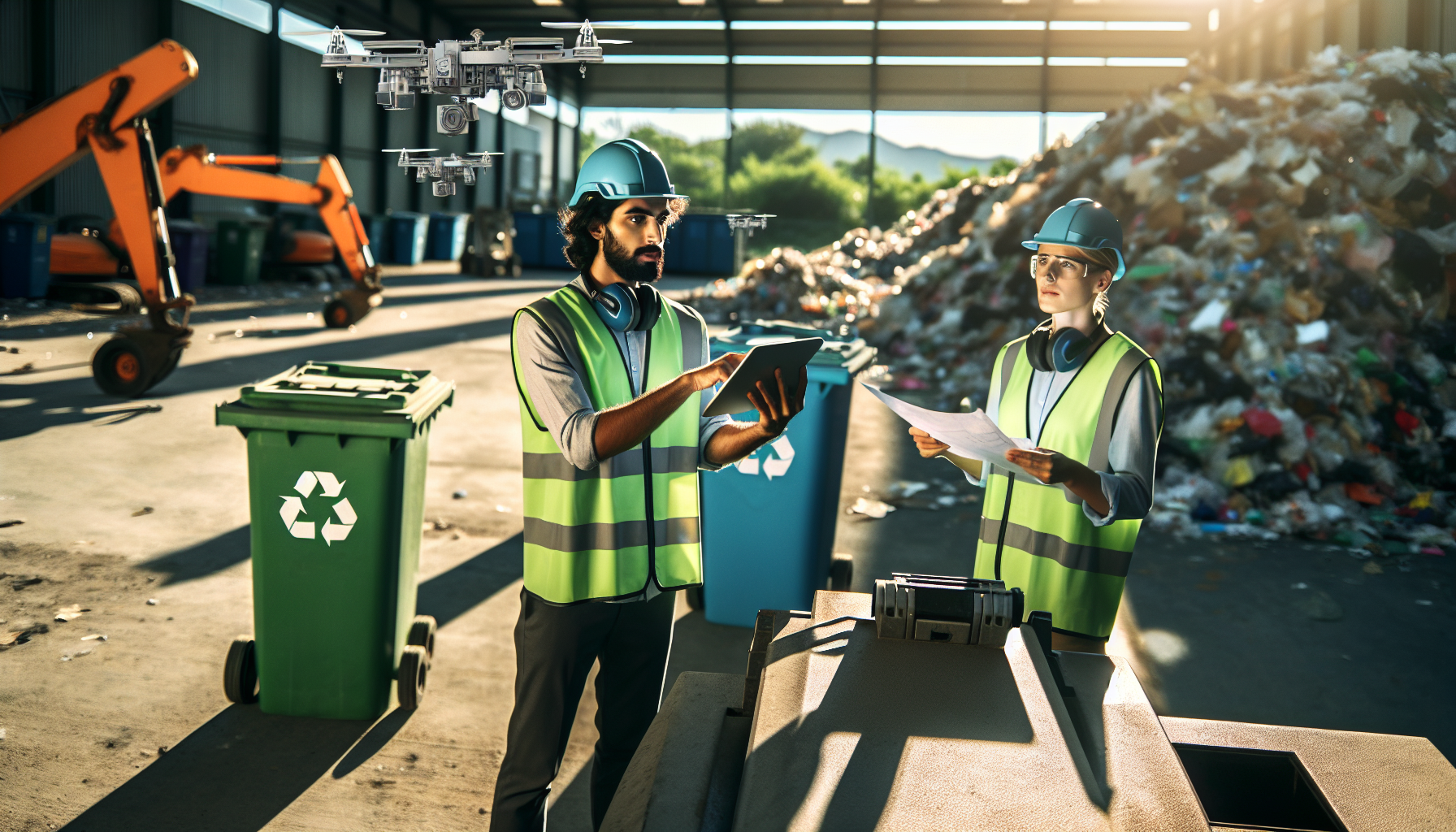In recent years, waste management and recycling have seen a surge in innovative practices and technologies to create more efficient, sustainable, and environmentally friendly methods of handling the waste produced by individuals, businesses, and communities. As waste generation increases globally, there is a pressing need for innovation to keep up with the growing demand for waste processing and minimize our ecological footprint.
Advanced Sorting Technologies
One of the most significant areas of advancement in recycling has been the development of sorting technologies. Traditional manual sorting methods are being supplemented and replaced by faster, more accurate automated systems that can handle larger volumes of recyclables. Robotics powered by artificial intelligence (AI) and machine learning algorithms can now identify and sort waste materials by type, color, and brand. For example, sophisticated optical sorters utilize infrared technology and high-resolution cameras to differentiate between different plastics, ensuring a higher purity in recycling streams.
These technologies improve the speed of sorting and reduce contamination in recycled materials, which is critical for the usability of post-consumer recycled content. By increasing the quality of sorted recyclable materials, these advanced technologies encourage manufacturers to utilize more recycled content in their products, closing the loop in the circular economy.
Enhanced Processing Techniques
Another area where innovation is making waves is enhancing processing techniques. Pyrolysis, gasification, and plasma arc recycling are modern processes that transform waste into energy or new materials, providing a lucrative alternative to landfill disposal. Pyrolysis, for example, heats waste materials without oxygen to produce synthetic gases and oils that can be used as fuel or further processed into chemicals or other products. Such technologies can reduce the overall volume of waste, lower greenhouse gas emissions, and create valuable commodities.
Biodegradable Materials
Developing biodegradable materials also plays a significant role in the future of waste management and recycling. With concerns over plastic pollution at an all-time high, there is a push for materials that can decompose naturally and safely when discarded. Innovations in this area include using plant-based plastics, biodegradable polymers, and even edible packaging materials. When utilized and disposed of properly, such materials can diminish the reliance on traditional plastics and alleviate the stress on recycling systems.
Industrial Symbiosis
A more systemic innovation within waste management is the concept of industrial symbiosis. This practice involves creating networks of businesses and industries that can use the waste outputs of one process as the input resources for another. This looped system can reduce waste, save energy, and create new business opportunities. For example, the waste heat from an electrical power plant could heat nearby facilities, or the by-products from one manufacturing process could become raw materials for another company.
IoT and Smart Waste Management
Integrating the Internet of Things (IoT) in waste management has also revolutionized how waste is collected and managed. Smart sensors and connected devices enable cities and companies to implement intelligent waste management solutions. These systems can monitor container waste levels, optimize collection routes and schedules, and provide data analytics to reduce operational costs. Moreover, they give consumers insights into waste generation, encouraging better recycling habits and waste reduction.
Education and Consumer Engagement
Beyond physical technologies, there is an increased emphasis on education and consumer engagement as a form of innovation. Cutting-edge communication and gamification tactics are being employed to teach the public about recycling and proper waste disposal. For instance, mobile apps provide users instant feedback on their recycling habits, set goals, and reward sustainable behavior, bridging the gap between knowledge and action.
Conclusion
Waste management and recycling innovations are paving the way for a greener and more sustainable future. With technologies that improve sorting and processing, biodegradable materials that counteract plastic pollution, industrial practices that promote circular economies, intelligent waste management systems that increase efficiency, and educational campaigns that foster better consumer habits, the trajectory for waste and recycling looks more promising than ever. As technologies advance and awareness grows, the ultimate objective of zero waste and a closed-loop system seems increasingly achievable, signaling a brighter future for both the environment and society.

